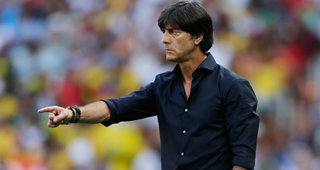Without even actually going to Brazil, the past month feels so much like the sequel to the Victor sequence in ‘The Rules of Attraction’. I no longer know who I am and I feel like the ghost of a total stranger after watching nearly every minute of World Cup 2014.
The individual brilliance of the early matches from James Rodríguez, Lionel Messi, Arjen Robben, Karim Benzema, Keylor Navas, Guillermo Ochoa and others were eventually muted and neutralized by countries with better all-around squads.
This was a World Cup that became reasonably predictable once we escaped the group stage.
All eight group winners advanced out of the round of 16 to the quarterfinals.
From there, with four matches of data, expected goals took quite a bit of the mystery out of the World Cup. xG is a fairly simple estimate on the total number of goals a team can expect to score or give up by assigning a value based on shot location, how the shot was created and other important factors.
I used the xG data compiled by Michael Caley to evaluate the eight quarterfinalists.
Germany beat France 1-0 despite France having a better xG in the match. Those two teams went into the quarterfinals first (FRA) and second (GER), and that is where the World Cup was won/lost for me. France surely would have also defeated a decimated Brazil team and would have been clear favorites against Argentina as Germany proved to be.
Colombia was a sexy pick to win it all following the group stage and the transcendent goal by James against Uruguay, but their +0.15 xG before the Brazil match told a different story. Brazil physically took James out of the match and not having Radamel Falcao became a liability for Colombia for the first time.
The Netherlands had a clear advantage against Costa Rica, but needed penalty kicks, while Argentina and Belgium was a near-tossup in terms of xG.
Brazil had a slim advantage over Germany ahead of the semifinals in terms of xG, but factoring in the absence of Neymar and Thiago Silva set the stage for the blowout that followed.
More interestingly, the Netherlands had a +1.00 xG differential ahead of the semifinals compared to just +0.52 for Argentina. The Netherlands were scared off by Messi and implemented an overly conservative and defensive strategy, man-marking him with Nigel de Jong. The Netherlands were far better when playing an open style, whether it was after they went down 1-0 to Spain, down 2-1 to Australia or 1-0 to Mexico. Game state mattered for them and I believe they would have beat Argentina instead of playing for penalty kicks.
In the final, Germany were clear favorites but Argentina had considerably better chances early that they were unable to convert and will forever haunt
Germany finally scored on the perfect André Schürrle cross to Mario Götze in which he chested the ball to setup his volley that I’ve literally watched 50+ times since the 113th minute of the final.
Germany had an xG of 1.3 compared to 1.0 to Argentina; this match was won and lost by the slimmest of margins.
The World Cup is over and these players leave the mistress that is national team football for their wife of club squads.
Götze returns to Germany a hero, but still must prove himself to Pep Guardiola when he goes south to Munich.
Messi returns to Barcelona to the newly arrived Luis Suárez and his fourth manager in four seasons.
James and Falcao try to gets their way from Monaco to Madrid.
Mesut Özil returns to London as a World Cup champion and is joined by Alexis Sánchez with the highest hopes Arsenal has had in years.
The World Cup goes dark for four years and there's a reason for that, whether those reasons are emotional, physical or financial. As Joan Didion once famously wrote, “it is distinctly possible to stay long at the Fair” and I admit to being ready to hear the Champions League anthem on those extraordinary Tuesday and Wednesday nights in Europe.



